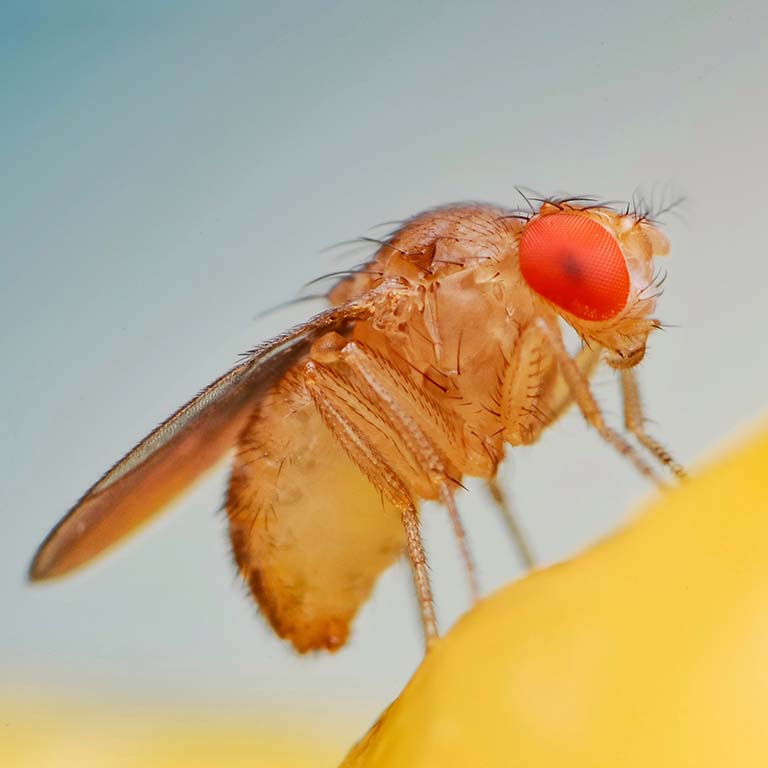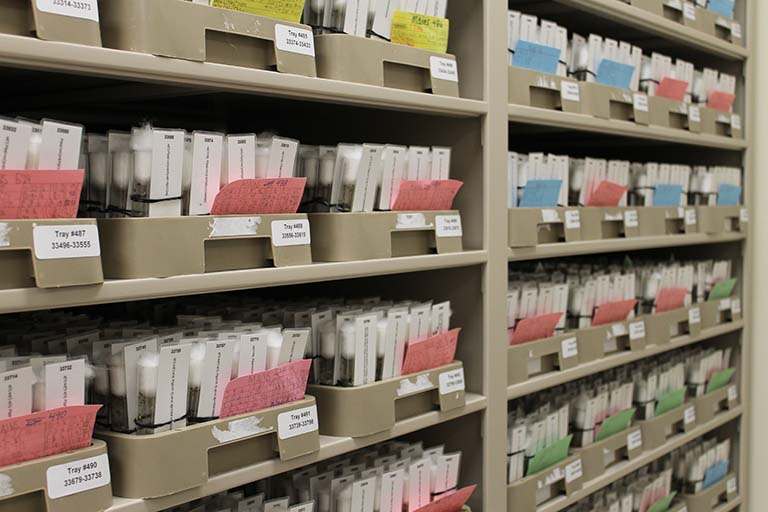The Tennessen lab—in collaboration with the labs of Angelo D’Alessandro (University of Colorado School of Medicine) and Norbert Perrimon (Harvard Medical School), as well as Steven Marygold at FlyBase/University of Cambridge and the Bloomington Drosophila Stock Center (IU Bloomington)—will use this award to conduct a large-scale study of metabolic genes in the fruit fly Drosophila melanogaster. The researchers will use multi-omics to conduct a genome-wide study of metabolic genes in the fruit fly Drosophila melanogaster with the goal of identifying metabolic enzymes and small molecule transporters that contribute to onset and progression of T2D. More simply said, they will seek the conserved genes that protect against a high sugar diet and prevent Type 2 diabetes.
Tennessen and his team chose to conduct this study in D. melanogaster because flies, like humans, are at risk of developing T2D when fed a high sugar diet. Moreover, many of the same hormone signals and metabolic pathways that regulate sugar metabolism in humans are conserved in flies. For example, insulin is the key regulator of blood sugar levels in flies, just as it is in humans. Using recent technological advances that enable the rapid and precise measurement of carbohydrate metabolism and gene expression, the team will disrupt expression of over a thousand individual genes and determine how loss of any single gene affects the onset of T2D in flies fed a high-sugar diet.
This study is only possible due to the collaborative team that includes three of the world’s premier genetic resource centers.
- The DRSC Functional Genomics Resources/Transgenetic RNAi Project at Harvard Medical School generated the genetic strains being used in the project.
- These lines are maintained by Bloomington Drosophila Stock Center, which is located within the IU Bloomington Department of Biology and houses over 80,000 D. melanogaster strains.



 The College of Arts
The College of Arts